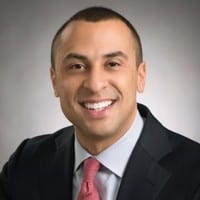The DPELC-MSL Speaker Series kicked of this year’s program by focusing on the city we call home: Chicago. Nick Colvin, Senior Advisor and General Counsel for the Office of the City Treasurer, gave a presentation on the city’s current economic climate, the underlying issues it faces, and the forward-thinking initiatives that are hoping to address these challenges.
When it comes to Chicago’s finances, there are reasons to be optimistic. The city’s economy is roughly the same size as that of Argentina and, in terms of venture capital investment, Chicago has outpaced many of its peers. A lot of this investment has been directed towards startups and the robust tech industry here.
Unfortunately, small business loans have lagged behind since the Great Recession. Local businesses lack access to capital and tend to pay high interest rates when they do get loans. The result is that a lot of opportunities for high-quality returns on neighborhood projects are left on the table. Racial inequities and growing debt exacerbate the problem.
The Office of the City Treasurer, in its role as an advocate for Chicago’s small business community, realized that this massive gap in capital access needed to be addressed. Their response was to set up a new initiative called the Chicago Community Catalyst Fund. Instead of awarding grants, investment consultants will use local managers to make targeted investments in highest opportunity neighborhood projects.
Like traditional investments, part of the objective is to get a market rate of returns. The program, however, also has broader economic goals like catalyzing development in underserved communities, stimulating job creation, and improving public infrastructure.
The Catalyst Fund is one of several initiatives focused on spurring the small business sector in Chicago. The City has also launched SimpleGrowth, an online lending platform for small businesses, invested $20 million into Illinois Service Federal, Chicago’s last black-owned bank; and announced a new effort to fully integrate ESG (environmental, social, and governance) factors into its investment decision-making process.
After Colvin’s presentation, students were able to ask questions about the initiatives, how the upcoming election might affect their progress, and what steps were being taken to inform residents of these new resources. The event provided a unique behind-the-scenes glimpse on how the “City That Works”, works.






